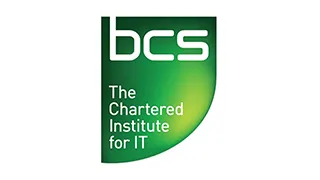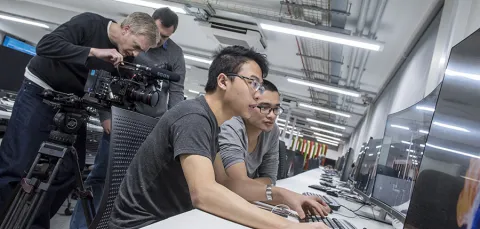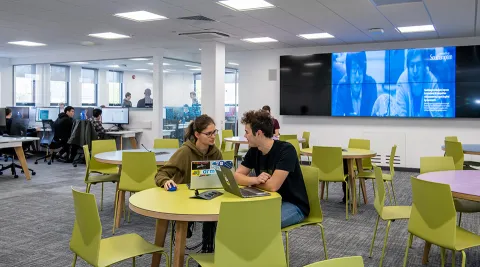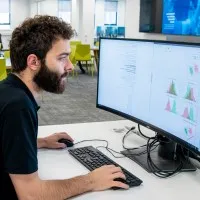About this course
On this master’s in software engineering, you’ll explore both traditional and contemporary approaches to software development.
MSc Software Engineering is designed for you to learn the topics you’re most interested in. You’ll select from a range of subject areas like cloud and mobile applications, security and user experience to study in depth.
MSc Software Engineering will develop your skills in traditional and contemporary software development. Our recognised software engineering master's will teach you formal methods and object-oriented programming. You’ll have the opportunity to enhance your skills in software modelling, design, development, and testing.
This master’s in software engineering offers taught modules in specialist subjects such as:
- cloud and mobile applications
- critical systems
- data mining
- e-business
- intelligent agents
- model checking
- security
- user experience
The University of Southampton has pioneered many of the most important advances in computer science and web technology of the past 10 years. We are also a partner of The Alan Turing Institute, the UK’s national institute for data science and artificial intelligence.
Studying here, you’ll become a master of software engineering, learn from expert academics and access excellent computer labs. The University of Southampton is recognised as an Academic Centre of Excellence in Cyber Security Research by the UK Government. Our academics have played a leading role in establishing a European Data Science Academy.
We regularly review our courses to ensure and improve quality. This course may be revised as a result of this. Any revision will be balanced against the requirement that the student should receive the educational service expected. Find out why, when, and how we might make changes.
Our courses are regulated in England by the Office for Students (OfS).
Course lead
This course is lead by Dr Corina Cirstea. Dr Cirstea’s research interests are in logic and models of computation, more specifically in coalgebras and their connection to logic and verification. Find out more by visiting Corina’s staff profile.
Accreditations

British Computer Society (BCS)
“The University of Southampton is a world class University and good at Electronic Engineering and Computer Science. Studying here is an amazing experience. The module sets are updated and inspired. The lecturers are supportive. The facilities are in well-maintained and accessible. ”
Learn more about this subject area
Course location
This course is based at Highfield.
Awarding body
This qualification is awarded by the University of Southampton.
Download the Course Description Document
The Course Description Document details your course overview, your course structure and how your course is taught and assessed.
Entry requirements
You’ll need an upper 2:1 degree (with a mark of 65% or above) in:
- computer science
- computer engineering
- software engineering
- media technology
- e-Business
- information technology
You must also have a good 2:1 (65%) score in the following:
- 1 programming module (Java, C++, C#, object-oriented, Python)
- 1 advanced mathematics module; ideally discrete maths including logic and set theory
- 3 computer science modules, such as: software architecture or design, data structures, databases, network, artificial intelligence, machine learning or web. Knowledge of functional programming (Haskell, Scala, F#) and modelling language such as UML
Find the equivalent international qualifications for your country.
Information for students who have studied in China
This programme only accepts applicants who have studied at an X1, X2, X3 or X4 institution.
English language requirements
If English isn't your first language, you'll need to complete an International English Language Testing System (IELTS) to demonstrate your competence in English. You'll need all of the following scores as a minimum:
IELTS score requirements
- overall score
- 6.5
- reading
- 6.0
- writing
- 6.0
- speaking
- 6.0
- listening
- 6.0
We accept other English language tests. Find out which English language tests we accept.
If you don’t meet the English language requirements, you can achieve the level you need by completing a pre-sessional English programme before you start your course.
Pre-masters
If you don’t meet the academic requirements, you can complete a pre-master's programme through our partnership with OnCampus. Learn more about the programmes available.
Got a question?
Please contact us if you're not sure you have the right experience or qualifications to get onto this course.
Email: enquiries@southampton.ac.uk
Tel: +44(0)23 8059 5000
Course structure
On this full-time MSc software development master’s course, you’ll study for 12 months, from September to the following September.
In the first 9 months (semesters 1 and 2) you'll study the taught part of your course.
This is made up of modules that everyone on the course takes, and modules we’ll ask you to choose from. Selecting your modules will allow you to explore the subject areas you are most interested in and will support your next career steps.
During semester 2 you’ll begin preparing for your dissertation.
For the last 3 months, over the summer, you’ll work independently to research and write your dissertation. You’ll have one-to-one meetings with your supervisor during this time to discuss your progress.
Want more detail? See all the modules in the course.
Modules
The modules outlined provide examples of what you can expect to learn on this degree course based on recent academic teaching. As a research-led University, we undertake a continuous review of our course to ensure quality enhancement and to manage our resources. The precise modules available to you in future years may vary depending on staff availability and research interests, new topics of study, timetabling and student demand. Find out why, when and how we might make changes.
For entry in academic year 2025 to 2026
Year 1 modules
You must study the following modules :
Automated Software Verification
This module aims to train students in both the principles and the practice of software verification. A range of verification approaches, including both testing and formal verification, will be covered. The use of logic as a specification language for prog...
MSc Project
Your research project will enable you to explore in depth some aspect of your specialist subject area. You will be allocated a project supervisor with whom you will meet and agree a project brief and plan. These must be submitted to, and agreed by, ...
Software Modelling Tools and Techniques for Critical Systems
This modules aims to provide practical skills in how to approach the modelling and design of a large critical software project. The module covers modelling techniques from requirements analysis to design and introduces a range of tools and approaches. In ...
Software Project Management and Secure Development
This module prepares students to develop an understanding of the critical issues and application of software project management. It introduces the students to the tools, techniques and body of knowledge involved in each stage of the project management lif...
You must also choose from the following modules :
Advanced Databases
This module builds on the first year Data Management module to give students a deeper and broader view of the issues involved in database management systems, some of the most complex software in common use.
Advanced Programming Language Concepts
This module covers concepts in programming languages that go beyond those typically seen or are new to mainstream languages. The goal is to encourage students to look beyond traditional programming practice by introducing new tools and techniques inspired...
Algorithmic Game Theory
This module: - Introduces the students to the key issues of interaction of multiple self-interested parties (a.k.a. agents) and gives a broad survey of topics at the interface of theoretical computer science and game theory dealing with such interactions...
Cryptography
This module covers the mathematics, techniques, and applications of modern cryptography. We will look at the history of code making and code breaking, and draw lessons for the future from the mistakes and successes of the past. We will also give a gentle ...
Knowledge Graphs for AI Systems
The last decade and a half have seen the Web move away from a purely document-centric information system to one in which hypertext techniques are applied to the sort of data found in databases; the term “Semantic Web” is used to refer to this Web of linke...
Mobile Applications Development
More and more people are using increasingly powerful mobile devices as their primary means of obtaining information and requesting services over the Internet. The shift from traditional personal computers (desktops and laptops) to mobile devices (Smart ph...
Software Security
This module focuses on both theoretical and practical perspectives in the security of software and software systems, by exploring software analysis and reverse engineering. The aims of the module at a high level are to: - Explore common threats to ...
Web and Cloud Applications Development
The aims of the module are: - To provide students with the opportunity to improve their understanding of web application development, and cloud computing systems. - To cover important techniques and issues in designing and building a modern web applicat...
Learning and assessment
Learning
You’ll learn through a mix of lectures, small group teaching, practical work and independent assignments.
As part of your study, you’ll undertake an individual project associated with a research group after you complete the taught part of semester 2.
Practical work will include advanced software development tools, directed reading and coursework.
Assessment
We’ll assess you through:
- written exams
- coursework
- problem solving exercises
- lab reports with literature review
- design exercises
- a dissertation
- individual and group projects
Dissertation
The 10,000 word project dissertation is focused on assessing software research and development skills.
Academic Support
We’ll assign you a personal tutor, and you’ll have access to a senior tutor.
Careers and employability
Employability skills
This degree will allow you to develop and evidence subject-specific and targeted employability skills. This includes the required skill set for a range of future careers, further study, or starting your own business.
The skills you can expect to focus on and gain from this course include:
- Research
- Critical thinking
- Commercial awareness
- Self-management
- Confidence
- Communication
- Teamwork
- Creativity
- Networking
- Adaptability
- Problem solving
- Resilience
The employability and enterprise skills you'll gain from this course are reflected in the Southampton skills model. When you join us you'll be able to use our skills model to track, plan, and benefit your career development and progress.
Download skills overview
Career pathways
Graduates commonly work in a range of organisations or sectors including:
Manufacturing,
Scientific and Technical,
Water and Waste Management,
Education,
Public Administration,
Defence,
Finance.
- Software engineer
- Game developer
- Applications engineer
- Software project manager
- Full stack engineer
- Software test engineer
- Security Engineer
- UX designer
- Cyber security analyst
- Project manager
- Security analyst
- Secondary school teacher
- Data analyst
- Financial analyst
- Consultant
- Software engineer
- Software developer
- Data analyst
- Site reliability engineer
- Software analyst
- Software development engineer
- Technology consultant
Job prospects for MSc Software Engineering graduates
*Example graduate job titles and job prospect statistics taken from The Graduate Outcomes Survey, which gathers information about the activities and perspectives of graduates 15 months after finishing their course.

Work experience opportunities
Choosing to do work experience is a great way to enhance your employability, build valuable networks, and evidence your potential. Learn about the different work and industry experience options at Southampton.
Careers services and support
We are a top 20 UK university for employability (QS Graduate Employability Rankings 2022). Our Careers, Employability and Student Enterprise team will support you. This support includes:
- work experience schemes
- CV and interview skills and workshops
- networking events
- careers fairs attended by top employers
- a wealth of volunteering opportunities
- study abroad and summer school opportunities
We have a vibrant entrepreneurship culture and our dedicated start-up supporter, Futureworlds, is open to every student.
Your career ideas and graduate job opportunities may change while you're at university. So it is important to take time to regularly reflect on your goals, speak to people in industry and seek advice and up-to-date information from Careers, Employability and Student Enterprise professionals at the University.
Fees, costs and funding
Tuition fees
Fees for a year's study:
- UK students pay £9,250.
- EU and international students pay £33,900.
Deposit
If you're an international student on a full-time course, we'll ask you to pay £2,000 of your tuition fees in advance, as a deposit.
Your offer letter will tell you when this should be paid and provide full terms and conditions.
Find out about exemptions, refunds and how to pay your deposit on our tuition fees for overseas students page.
What your fees pay for
Your tuition fee covers the full cost of tuition and any exams. The fee you pay will remain the same each year from when you start studying this course. This includes if you suspend and return.
Find out how to pay your tuition fees.
Accommodation and living costs, such as travel and food, are not included in your tuition fees. There may also be extra costs for retake and professional exams.
Explore:
10% alumni discount
If you’re a graduate of the University of Southampton, you could be eligible for a 10% discount on your postgraduate tuition fees.
Postgraduate Master’s Loans (UK nationals only)
This can help with course fees and living costs while you study a postgraduate master's course. Find out if you're eligible.
Funding your postgraduate studies
A variety of additional funding options may be available to help you pay for your master’s study. Both from the University and other organisations.
Funding for EU and international students
Find out about funding you could get as an international student.
How to apply
- Use the blue 'apply for this course' button on this page to take you to our postgraduate admissions system.
- Create an account which gives you access to your own application portal. .
- Search for the course you want to apply for.
- Complete the application form and upload any supporting documents.
- Pay the £50 application assessment fee, (there are some exemptions, check terms and conditions).
- Submit your application.
For further details of our admission process, read our step by step guide to postgraduate taught applications.
Application deadlines
UK students
The deadline to apply for this course is Tuesday 9 September 2025, midday UK time.
We advise applying early as applications may close before the expected deadline if places are filled.
International students
The deadline to apply for this course is Tuesday 26 August 2025, midday UK time.
We advise applying early as applications may close before the expected deadline if places are filled.
Application assessment fee
We’ll ask you to pay a £50 application assessment fee if you’re applying for a postgraduate taught course.
This is an extra one-off charge which is separate to your tuition fees and is payable per application. It covers the work and time it takes us to assess your application. You’ll be prompted to pay when you submit your application which won’t progress until you've paid.
If you're a current or former University of Southampton student, or if you’re applying for certain scholarships, you will not need to pay the fee. PGCE applications through GOV.UK and Master of Research (MRes) degree applications are also exempt. Find out if you’re exempt on our terms and conditions page.
Supporting information
When you apply you’ll need to submit a personal statement explaining why you want to take the course.
You’ll need to include information about:
- your knowledge of the subject area
- why you want to study a postgraduate qualification in this course
- how you intend to use your qualification
References are not required for this programme.
Please include the required paperwork showing your first degree and your IELTS English language test score (if you are a non-native English speaker) with your application. Without these, your application may be delayed.
What happens after you apply
You'll be able to track your application through our online Applicant Record System.
We receive a high volume of applications for this course. This means you may not receive a response to your application for up to 12 weeks.
If we offer you a place, you will need to accept the offer within 30 working days. If you do not meet this deadline, we will offer your place to another applicant.
Unfortunately, due to number of applications we receive, we may not be able to give you specific feedback on your application if you are unsuccessful.
Equality and diversity
We treat and select everyone in line with our Equality and Diversity Statement.
Got a question?
Please contact us if you're not sure you have the right experience or qualifications to get onto this course.
Email: enquiries@southampton.ac.uk
Tel: +44(0)23 8059 5000





